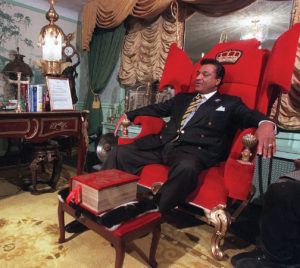Mr. History,
During the English Civil Wars, the Northern Irish were in rebellion. In the late 1640s, the Parliamentary New Model was able to go over to Ireland, and with the massacres of Drogheda and other Irish towns were able to pacify Northern Ireland. Why didn’t Cromwell and the New Model Army try to unify Ireland, and bring it as a whole into the Commonwealth and Protectorate?
Thanks,
Joseph
? ? ?
Dear Joseph,
I don’t see what criterion you are using to define “unification” under the Commonwealth, but Oliver Cromwell did, in fact, officially bring Ireland within the Commonwealth of England, Scotland and Ireland during 1653–1659. Although he departed the island on May 27, 1650, to deal with another Royalist threat in Scotland, the commanders he left behind continued to carry out his strategy until 1652, effectively destroying the leadership of Ireland’s Catholic and Royalist coalition. At the same time, more English lords took over land rights in Ireland, reducing the pre-bellum percentage owned by Catholics from 60 percent to 20 percent, and greatly reduced Catholic political influence anywhere outside of the Irish parliament. Adding to English depredations during the campaign was that it coincided with a wave of famine and bubonic plague.
Although King Charles II did much to reverse Cromwell’s severest decrees in his quest to gain the good will of Irish Catholics and English Protestants alike during the Restoration, Cromwell’s incorporation of Ireland within England’s aegis still stood. In practice, despite the loss of their leadership Irish guerrilla movements continued to pop up, exiled Irish soldiers fought for any enemy of England (usually the French), and the French Revolution would breed a new generation of Irish nationalists, including the Republican movement. Meanwhile, between the slaughters over which he presided at Drogheda and Wexford, and the comprehensive nature of his incorporation of Ireland into the Commonwealth (which some modern critics have retrospectively likened to 17th century forms of anything from “ethnic cleansing” to “genocide”) Cromwell has taken his place in that special pantheon of Englishmen that Irishmen love to hate.
Sincerely,

Jon Guttman
Research Director
World History Group
More Questions at Ask Mr. History
Don’t miss the next Ask Mr. History question! To receive notification whenever any new item is published on HistoryNet, just scroll down the column on the right and sign up for our RSS feed.




